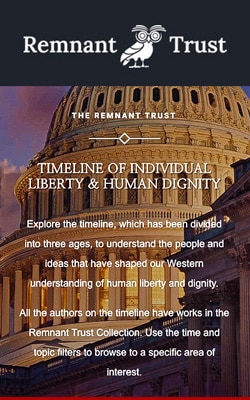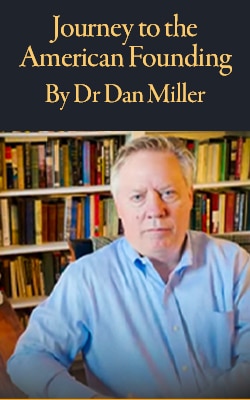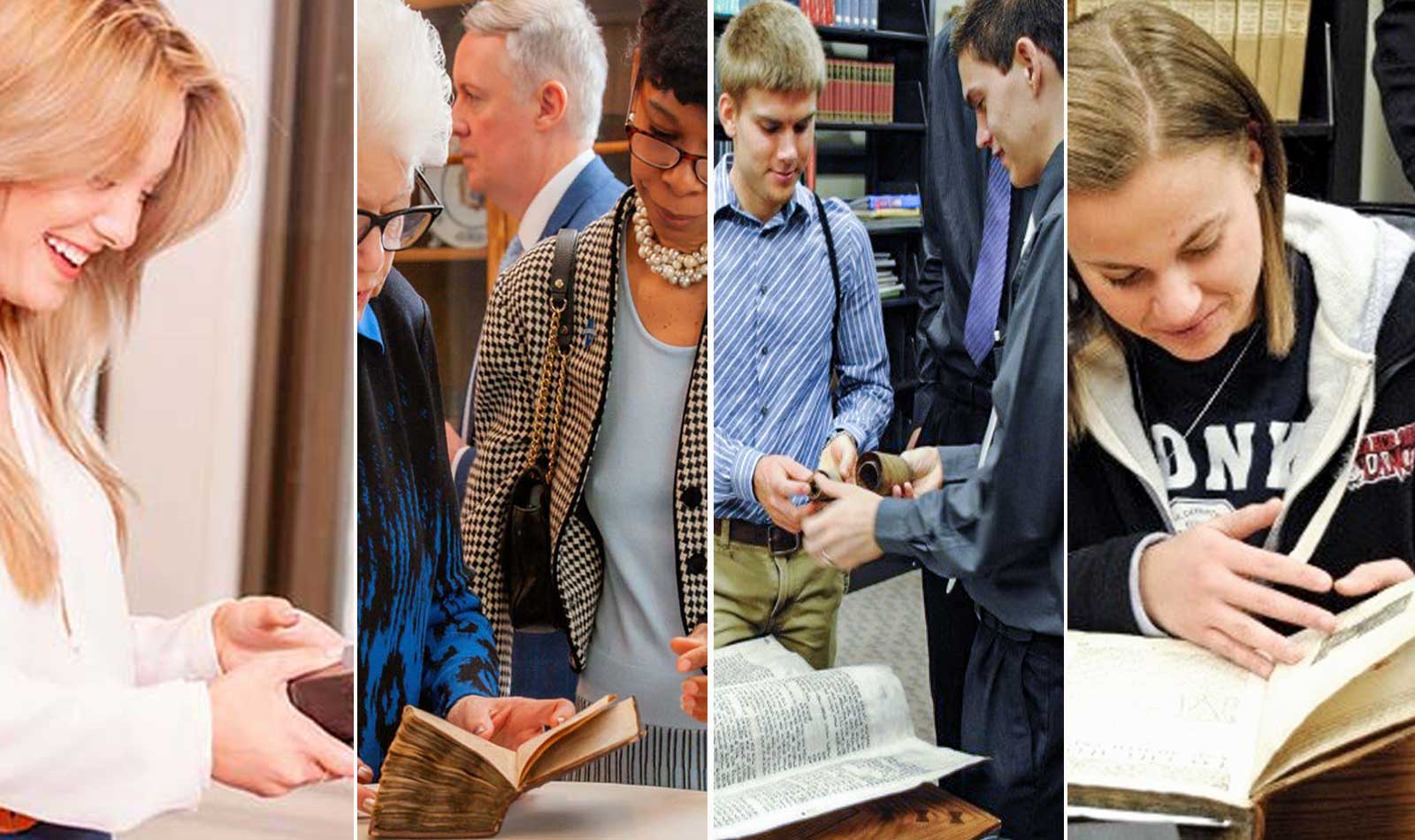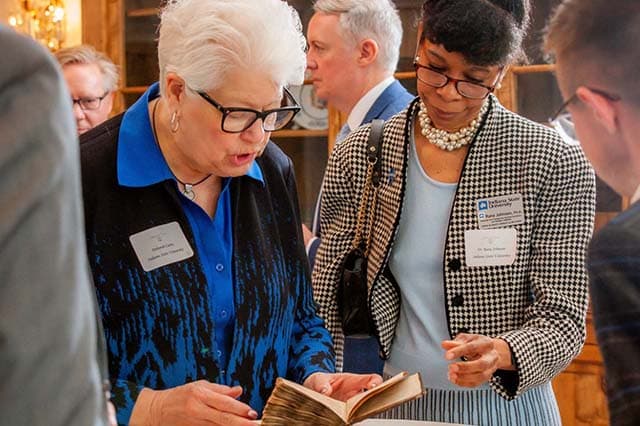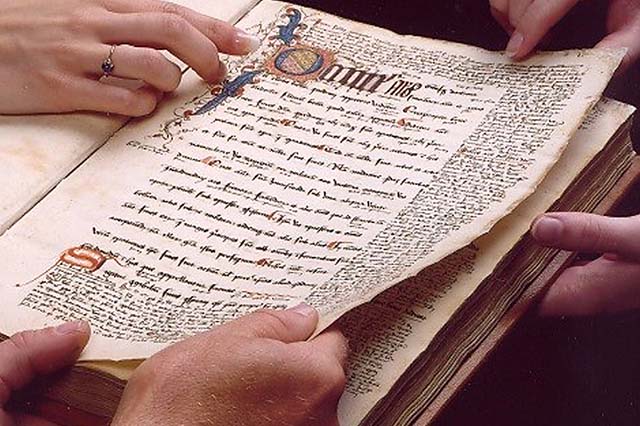WHO IS THE REMNANT TRUST?
The Remnant Trust is a Public Educational Foundation.
We were founded to preserve and share our growing collection focusing on individual liberty and human dignity.
The Trust is a public educational Foundation that shares an actively growing collection of manuscripts, 1st edition, and early works dealing with the topics of individual liberty and human dignity, with some pieces dating as early as 2500 BCE. We make our collection available to colleges, universities, professional, civic, and other organizations for use by students, faculty, scholars, and the general public.
Our growing collection of manuscripts, 1st edition, and early works dates back as early as 2500 BCE.
Following along a timeline of liberty and dignity, our collection is comprised of some of the greatest works of man that focus on the proper function of government, responsibility of citizenship, and how we live together in society.
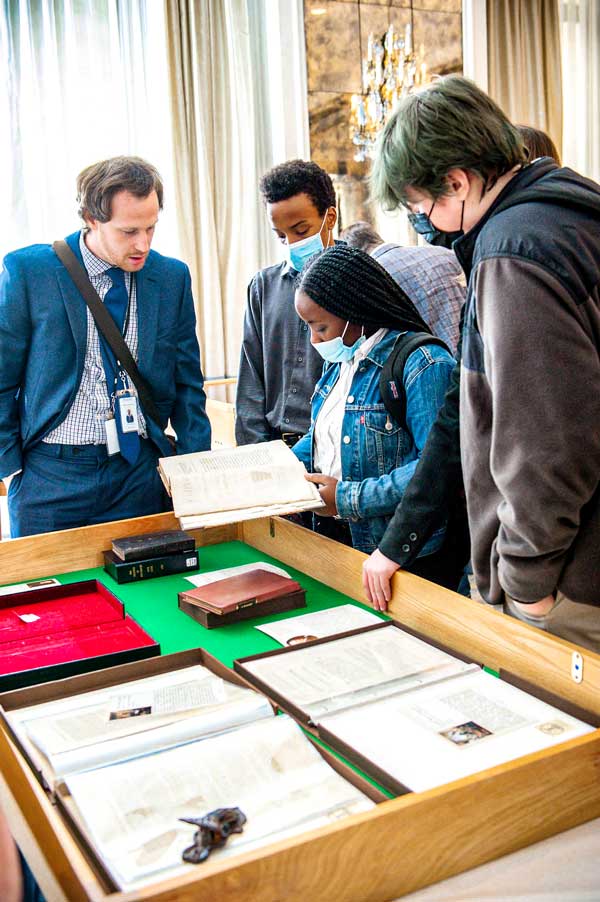

“The mission of The Remnant Trust is to elevate educational standards & the public’s understanding of individual liberty & human dignity through the precedent setting, hands on availability of the world’s great ideas in original form… more ”
WHAT DOES THE REMNANT TRUST DO?
We are passionate about growing, preserving and sharing these rare documents.
Protecting and Sharing Great Works and Ideas of Liberty and Human Dignity
The Remnant Trust collection began more than three decades ago by Founder Brian Bex. Deeply passionate about individual liberty and human dignity, he identified the 100 most important works speaking to these topics, gaining input from scholars.
The Trust has since been dedicated to our mission to elevate educational standards and the public’s understanding of individual liberty and human dignity through the precedent-setting, hands-on availability of the world’s great ideas in original form—and raising the consciousness of the most significant documents that have shaped America: The Great Experiment.
Today, The Remnant Trust’s Wisdom of the Ages Athenaeum is a preeminent privately funded collection of over 1,600 original and early version texts about individual liberty and human dignity putting forth a body of ideas, moral habits and beliefs, conventions and customs of the past to bridge time itself.
The Remnant Trust’s vision has always been to provide the opportunity for people to hold, examine, read and discuss the pieces of the collection.
Our Holdings / Volumes
Manuscripts
Exhibitions
Years / Time Line
Preserving Ideas of Individual Liberty & Human Dignity
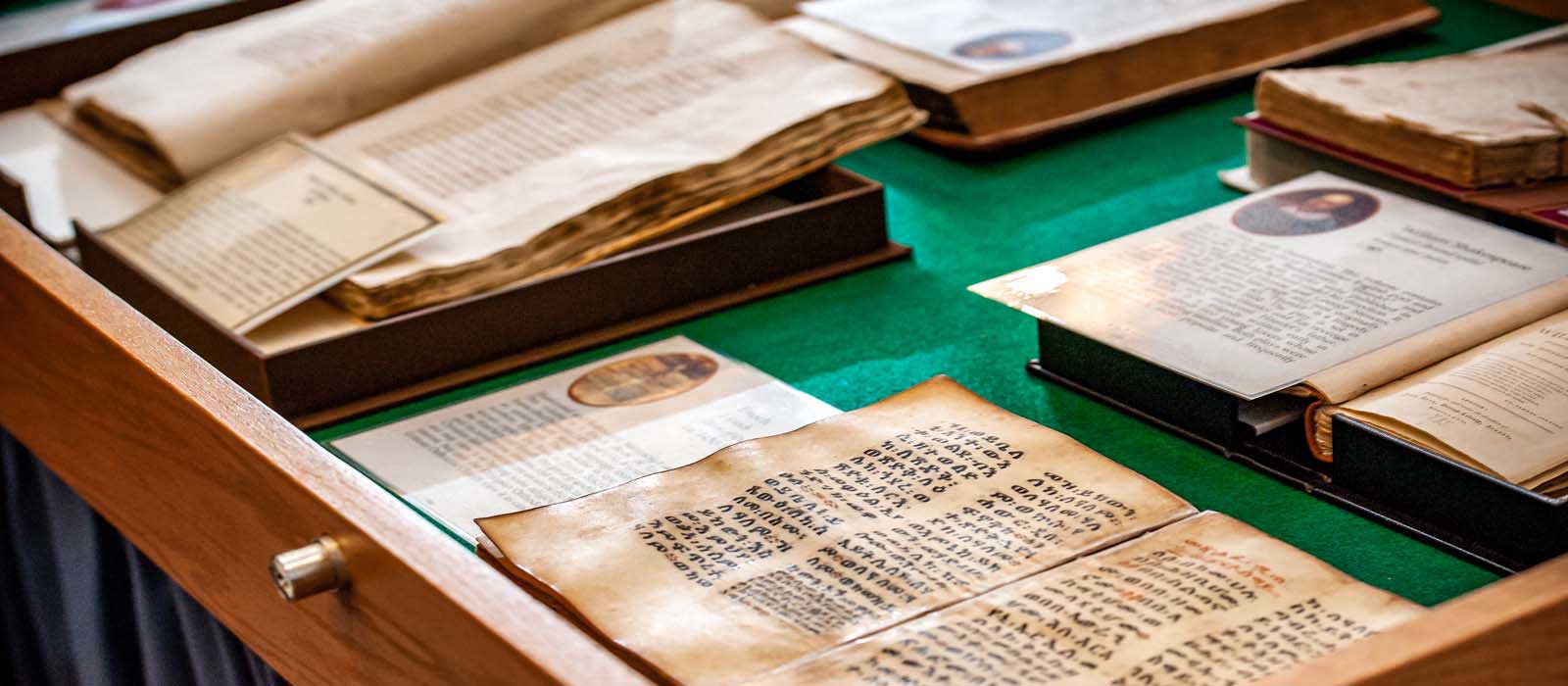
The Trust is distinctive because audiences directly interact with the collection and engage in programs and discussions to expand their knowledge and build community. Participants are transformed as they experience the magnitude of the Trust’s historic, centuries-old texts and learn directly about liberty and human dignity from sages spanning four-and-a-half millennia.
WHY DO WE DO THIS?
Unleashing Passion and Curiosity for Individual Liberty and Human Dignity
The Challenge today is to . . .
Prepare this generation to draw on the accumulated wisdom and experience of the past in order to deal with the enduring questions in the new circumstances of the 21st century. In meeting this challenge our strategy is to provide exposure to original sources of the most significant documents that have shaped society; inspire an interest and competency in issues of individual liberty and dignity; engage in civil discussion and debate regarding the great ideas of historical minds.


“If all mankind minus one, were of one opinion, and only one person were of the contrary opinion, mankind would be no more justified in silencing that one person, than he, if he had the power, would be justified in silencing mankind.”
― John Stuart Mill, On Liberty

The Remnant Trust’s officers and staff come from all walks of life and different backgrounds but we share a common interest and understanding for the need to have all sides to be represented in The Collection so individuals can form their own opinions and ideas.
No one person owns The Collection, The Remnant Trust, Inc. organization owns and preserves it.

THE REMNANT TRUST BLOG
Featured Works
An Inquiry into the Nature and Causes of the Wealth of Nations by Adam Smith
Featured Work First Edition. “The Wealth of Nations” is known as one of the world's first and greatest classics on modern economics. Its foundation was constructed from Smith’s “The Theory of Moral Sentiments” and it was a culmination of seventeen years of notes and...
I quindici libri degli elementi di euclide, di greco tradotti in lingua thoscana (Elements) by Euclid
Featured Work Second Edition in Italian. The famous mathematical treatise, “I quindici libri degli elementi di euclide, di greco tradotti in lingua thoscana,” also known as “Elements” is attributed to Euclid. This volume was published in 1545 and translated by the...
De Consolatio Philosophiae by Anicius Manlius Severinus Boethius
Featured Work Illuminated and Rubricated Manuscript on Paper in Latin. This manuscript contains “De Consolatio Philosophiae” with an anonymous commentary on Boethius. It was transcribed in an early humanist hand around 1400-1425 in Northern Italy. The Consolation of...
The Alcoran of Mahomet (Quran)
Featured Work First English Edition. The Quran is the sacred religious text of Islam, entitled here, “The Alcoran of Mahomet.” It was published in 1649 and the translation is attributed to Scottish clergyman Alexander Ross; an additional text included in the volume...
On the Revolutions of the Heavenly Spheres by Nicolai Copernicus
Featured Work Third Edition in Latin with diagrams and tables. This edition was prepared by Nicolaus Mulerius and is the first to contain explanatory notes and source notes to the Greek phrases used by Copernicus as well as the first to contain the biography of...
Historia Scholastica by Peter Comestor
Featured Work Illustrated Manuscript on paper in Latin. Peter Comestor, also known as Peter the Devourer for his insatiable appetite for knowledge, was a twelfth-century French theologian and chancellor at the University of Paris. Completed around 1173, the "Historia...
